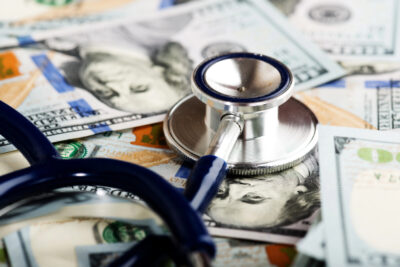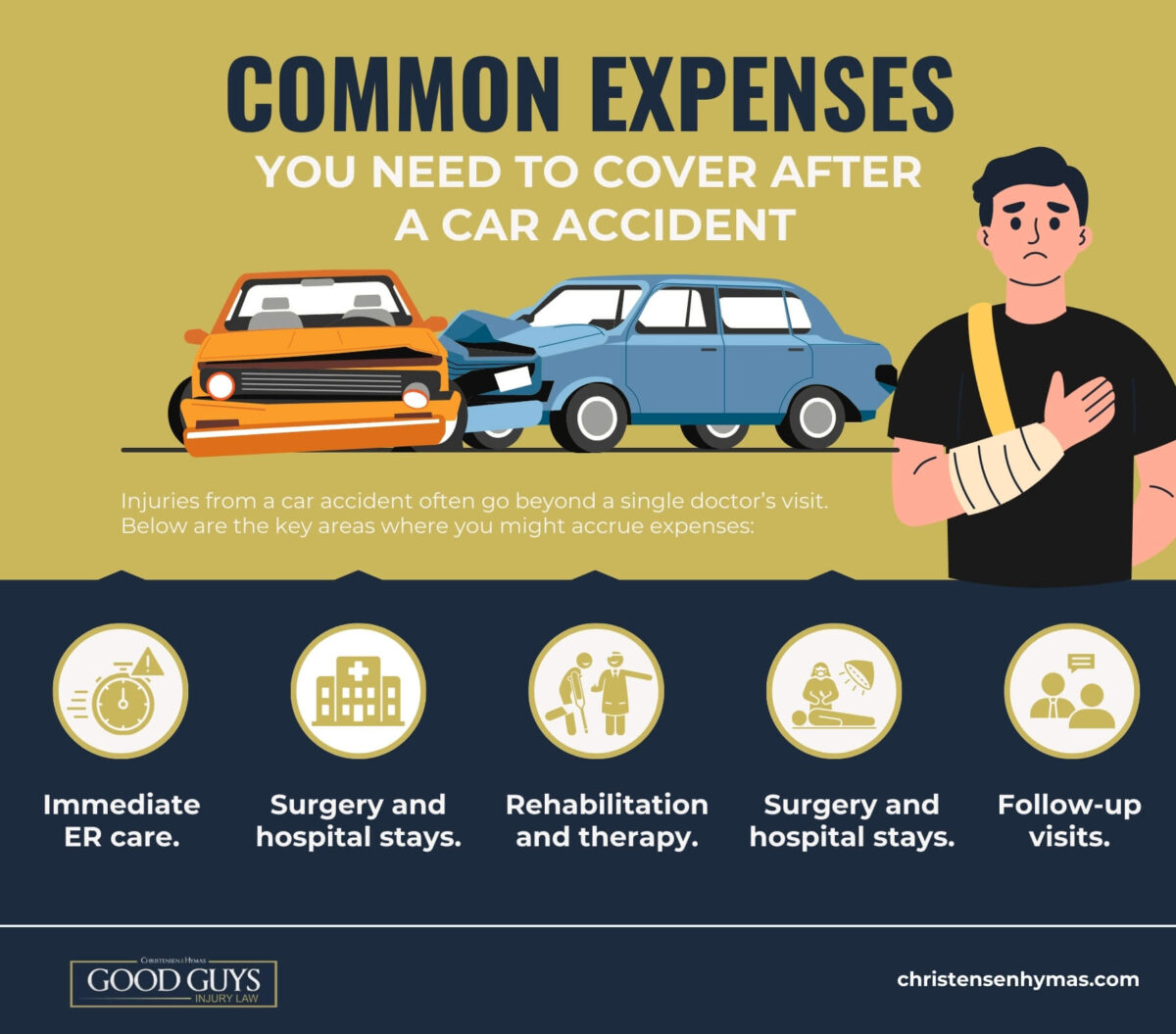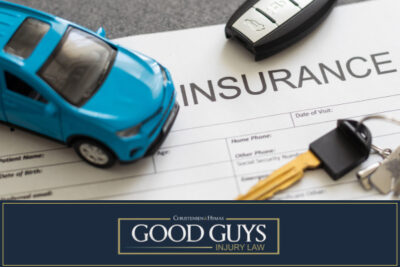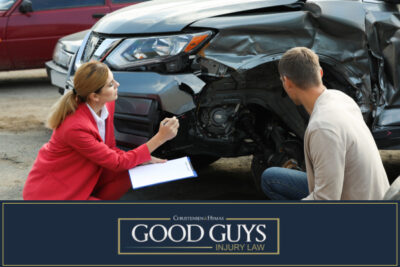
Handling medical bills after a car accident can feel daunting, especially when you’re still recovering. Many people wonder how to cover hospital stays, specialist visits, and ongoing therapy costs. When the crash wasn’t your fault, you may hope the at-fault driver’s insurance will step in and pay quickly. However, the reality is often more complicated, requiring you to explore various payment methods and work with different types of insurance coverage.
Even if the other driver seems clearly responsible, you could still face immediate out-of-pocket costs. Timely medical treatment cannot wait for prolonged insurance disputes. Meanwhile, ongoing health insurance coverage might not handle all charges, or your plan may have high deductibles. At Good Guys Injury Law, we prioritize the right and best interests of our clients. Learn more about some of the most common bills you might face after a car crash. Then, contact us to schedule a free consultation so we can discuss your options for covering them.
Table of Contents
Understanding Your Medical Bill Responsibilities After an Accident
You remain responsible for covering your medical expenses as they come due, regardless of fault. This means hospitals or clinics will send you invoices if the insurance company delays or disputes claims. Even if another party eventually reimburses you, the providers will expect payment in the meantime.
Many drivers underestimate how quickly bills can pile up. Even minor injuries become costly between ambulance fees, x-rays, and follow-up appointments.
Common Expenses You Need To Cover After a Car Accident

Injuries from a car accident often go beyond a single doctor’s visit. Below are the key areas where you might accrue expenses:
- Immediate ER care. Ambulance rides and emergency room evaluations can be pricey. Some people also need overnight observation after the wreck.
- Surgery and hospital stays. Serious trauma like broken bones or internal damage may require invasive procedures. Extended hospital stays increase overall bills. Serious injuries requiring surgery might be even more common for car accidents occurring during snowy conditions.
- Rehabilitation and therapy. Physical or occupational therapy helps you recover mobility. These sessions can span weeks or months.
- Surgery and hospital stays. Pain relievers, crutches, braces, or wheelchairs might be part of your recovery plan. Insurance might cover some, but not all, items.
- Follow-up visits. Checkups ensure your injuries heal properly and detect complications. Skipping these appointments could slow your recovery.
Bills can surface from multiple providers, leaving you juggling statements and deadlines. Keeping a record of each service helps you track costs and pursue reimbursement properly.
Who Is Responsible for Paying Your Medical Bills?
Liability plays a major role in determining who ultimately covers expenses following a car crash. Typically, you pay your own bills first, then seek compensation from the at-fault driver’s insurance company or other parties. However, receiving that payout can take time, making knowing other funding sources or coverage vital.
If you caused the crash, your own auto insurance or health insurance provider may foot part of the bill, depending on your policy limits. For instance, medical payment coverage on your auto insurance could help with some out-of-pocket costs. However, delays are common even in clear-cut cases where the other driver is at fault. This is why planning for interim solutions—like your personal coverage or payment arrangements—matters.
Common Misconceptions About Insurance Coverage

Some people make incorrect assumptions about how insurance works after a wreck. Some of the most common misconceptions people have include:
- “The other driver automatically pays.” Liability must be established, and the at-fault person’s insurer might challenge the fault. Receiving funds is not guaranteed upfront.
- “My insurance covers everything.” Health insurance coverage can leave copays or deductibles. Auto insurance has policy limits that may be insufficient.
- “I Don’t need evidence of injury.” You must document every aspect of your medical treatment for a successful claim. A lack of records weakens your position.
- “Insurance works quickly.” Adjusters often investigate or negotiate extensively. Settlement checks might not arrive for months.
- “A lawyer isn’t necessary.” Without legal help, you might accept a low settlement. A seasoned counsel can ensure fair compensation.
Remembering these points can help you make informed decisions. A bit of caution now prevents big headaches later.

Wondering how to pay medical bills after a car accident? Let us help you find the best solution. Contact Good Guys Injury Law today!
Payment Options for Medical Bills
You are not powerless while insurance negotiations play out. A few strategies exist to avoid falling behind on your bills. Below are the main avenues for securing immediate or short-term financial relief while you pursue compensation.
Using Personal Injury Protection (PIP) Insurance
PIP covers some medical expenses and lost wages regardless of who caused the crash. States vary in PIP requirements, so check your auto insurance policy. If included, PIP can quickly pay part of your bills and reduce financial stress. Keep detailed records of each charge to ensure reimbursement goes smoothly. We will help you review your options for addressing your medical costs.
Filing a Health Insurance Claim
If you have active health insurance, it might pick up certain costs until liability is resolved. The Affordable Care Act ensures plans cannot deny coverage due to pre-existing conditions, but you may face deductibles or copays. Later, your health insurance plan might seek reimbursement if you win a settlement or court award. This process, called subrogation, can complicate final payouts. If you want to get your medical bills paid, reach out to us to schedule a free case review.
Negotiating Payment Plans With Medical Providers
Many hospitals or doctors’ offices allow installment plans if you communicate proactively. A formal agreement could prevent collections or damage to your credit score. Be honest about your financial situation, specifying that you are awaiting an insurance settlement. Promptly making smaller payments keeps relationships positive and avoids further stress. We can help you make sure your medical bills are paid.
Seeking Compensation From the At-Fault Driver

When someone else causes the auto accident, holding them accountable becomes crucial. Filing claims or lawsuits demands proof that they acted negligently, causing your injuries. Even so, the process can be lengthy, requiring patience.
Filing a Claim With Their Insurance Company
Most people start by submitting a claim to the other driver’s car insurance company. Adjusters investigate, gathering statements, police reports, and medical evidence. If liability is confirmed, they might offer a settlement that covers your medical bills and related losses. Negotiations often occur, so do not feel compelled to accept the first offer if it seems inadequate.
Proving Liability and the Extent of Your Injuries
Insurance adjusters often look for ways to minimize payouts. You might need proof of the other driver’s fault, such as eyewitness accounts, photos, or official crash data. Texting and driving allegations can also play a role in how fault is assigned. Showcasing thorough medical documentation confirms the severity of your injuries, strengthening your case. An experienced personal injury lawyer can ensure your evidence is well-presented, maximizing your potential compensation.
Handling Insurance Denials and Delays
Occasionally, an insurer might delay your claim or deny it outright. The company could argue your injuries are unrelated to the accident, or they may question your medical treatment. You can appeal or seek alternative payment strategies in the meantime. Persistence, coupled with professional assistance, often reverses unfair denials.
If negotiations fail, litigation may become necessary. Court proceedings add time but might produce a better result if the insurer refuses to be reasonable. This path involves filing a lawsuit, gathering more in-depth evidence, and possibly going to trial. A knowledgeable attorney shields you from intimidation and keeps things moving forward.
How Our Utah Car Accident Lawyer Fights for You
We are aware of the toll unpaid medical bills can take on your finances and peace of mind. Our firm works to expedite your claim and secure every dollar you deserve. Below are five key ways we help:
- Negotiating with insurers. We handle discussions with the car insurance company, presenting a strong case. Our goal is a fair, prompt settlement.
- Coordinating evidence. We collect medical records and accident reports to clearly depict your damages. This organization leaves little room for disputes.
- Protecting your rights. We stand up for you if the insurer attempts lowball offers. You remain informed about every decision.
- Handling legal filings. Whether it’s a formal complaint or a demand letter, we manage the paperwork. Our thorough approach ensures nothing is overlooked.
- Exploring all avenues. Beyond standard auto insurance, we investigate options like medical payment coverage or other sources. We aim to maximize your recovery.
We focus on solutions that fit your unique needs and timeline. We keep communication open throughout the process so you never feel left in the dark.

Looking for a Personal Injury Attorney? Contact Good Guys Injury Law Today!
Contact Our Utah Car Accident Lawyer for a Free Consultation

You do not have to handle mounting bills or insurance disputes alone. Good Guys Injury Law is here to provide clarity, assistance, and a solid legal strategy. Our firm offers a free consultation so you can understand your best path forward without added stress. We encourage you to take a look at our client testimonials and our previous case results. Call us now to schedule your free case consultation. Let us show you how we can help you save money and position yourself for comprehensive healing.
